Littlewood has brought its blend of Dragon Quest Builders meets Stardew Valley to Nintendo Switch. It’s a platform with no shortage of farm-sims already, but Littlewood approaches things a little bit differently.
Its pint-sized take on town-building makes for a wholesome and completely customizable experience that, despite some unnecessary grinding, is a joy to spend time with.
So, what happens after you’ve saved the world?
Littlewood Switch Review: Welcome Home
In Littlewood, you’re an RPG hero that’s left the battlefield behind to build a thriving community. And, of course, you’ve lost your memories.
Outside some cutscenes, Littlewood is content to mostly not explore its big premise of taking place after the final boss fight. These scenes slowly unveil what really happened and why you’ve lost your memories, but what’s more important is how it affects the setting. You start with two friends who fought in the final battle with you, or so they say, and your first task is setting up homes so they’re as comfortable as possible.
Littlewood is instantly cozy and intimate, adding a small but important human touch to everything you do, all helped by your friends’ kind and exuberant personalities. The town gradually attracts even more people, some from your past and others who just need a friend or an outlet for their passions. It never expands beyond its initial borders, though. Size does matter, but not how you might think.
Littlewood is small, even seemingly cramped at first, but it’s a smart move that forces you to engage with one of its best features: building. Like other aspects of Littlewood, your building options are simple — laying roads, raising or lowering elevation, placing fences, and so on.
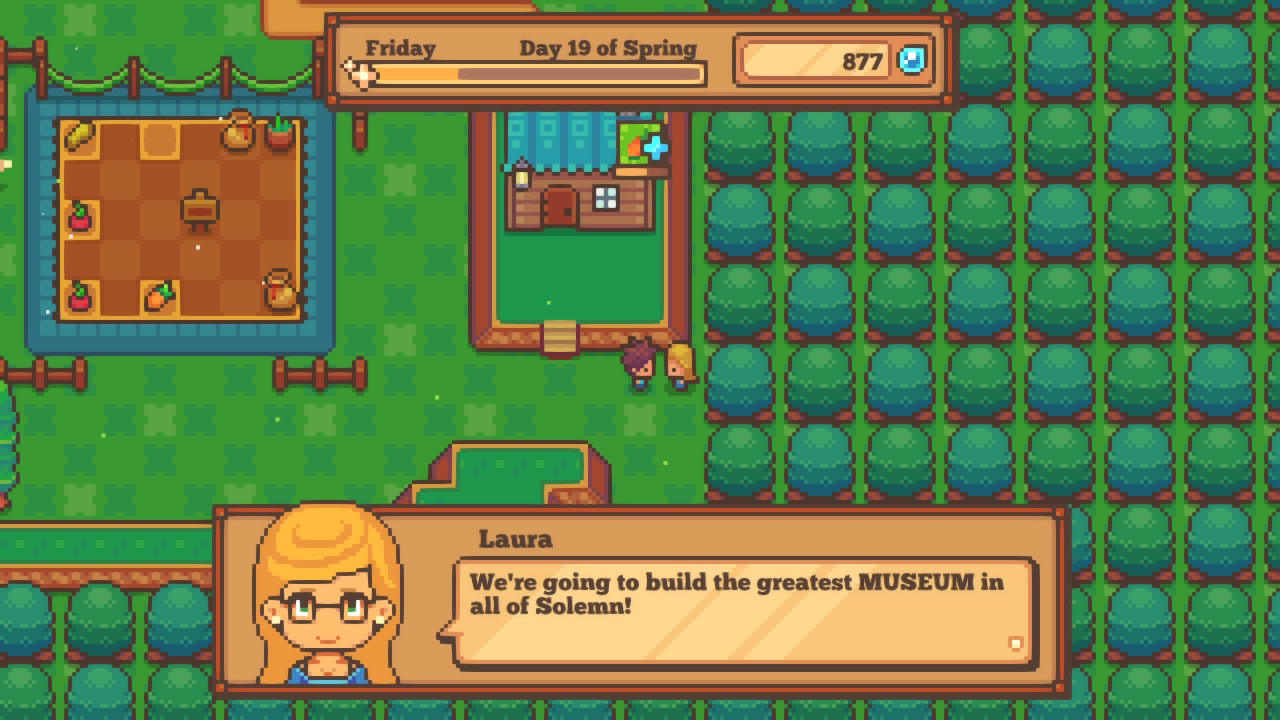
Everything’s unlocked from the start, and the original layout means you’ll have to experiment right away unless you want everyone living cheek by jowl surrounded by hills.
Then you’ll re-design it again, probably.
Completing one set of townsfolk requests unlocks a new one with more specific preferences, such as living near the coffee shop or living further away from the general store. It seems like an arbitrary design decision at first, but the more I engaged with it, the more I came to appreciate how it helps your town evolve without just relying on new buildings.
I could see my town’s design growing into something better and, more importantly, something uniquely my own that’s easier to tweak and tailor than a bigger setting would be.
There’s a slew of buildings and decorations you can spruce your town up with, and the setting shines through here as well. Building an entire city a la Dragon Quest Builders is fun, but Littlewood’s laser focus on a smaller area means I ended up getting more creative with layouts than I usually do and never felt overwhelmed.
Such an open design extends to Littlewood’s relationships. Like all good farm(ish)-sims, Littlewood has romance options, and by “options,” I mean “almost everyone except Dudley the fisherman because he’s old enough to be your grandpappy.” You can even marry Bubsy the Bird if that’s what lines your nest.
The Switch version benefits from extra polish and improvements added over time since the original PC release, most noticeable in character dialogue that changes frequently and keeps interactions fresh. That’s a good thing because you’ll want to talk with them a lot.
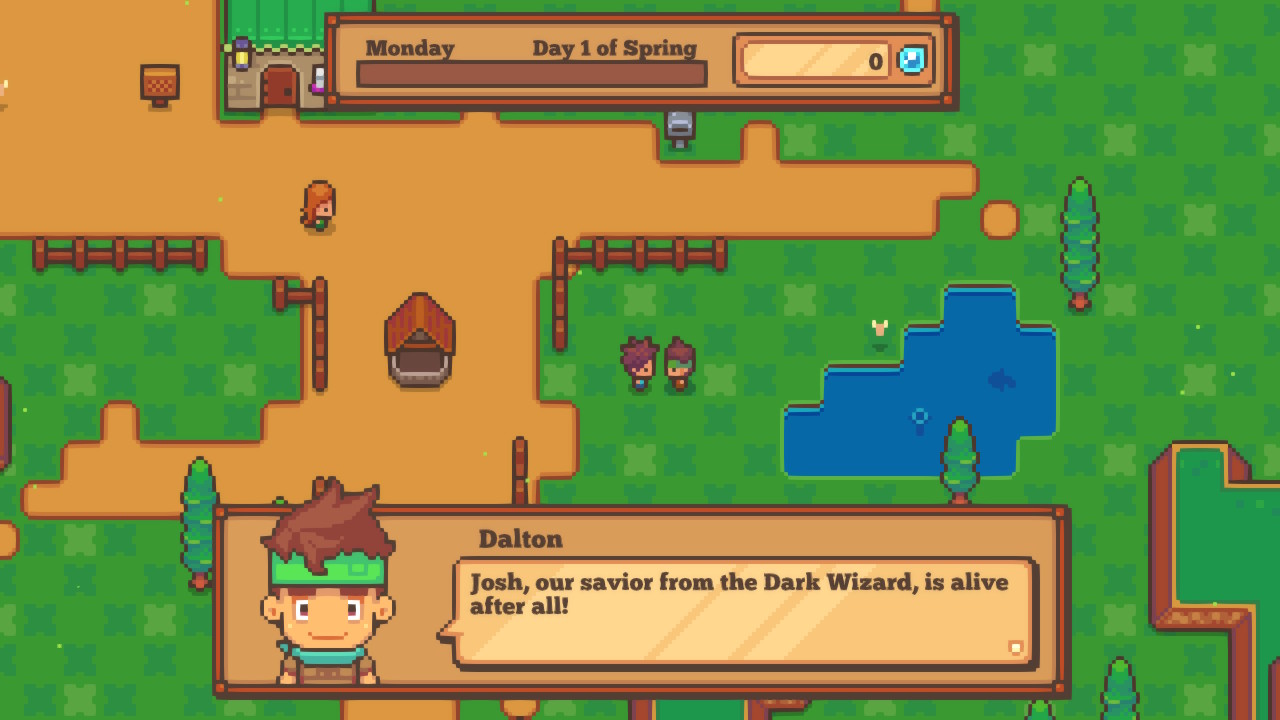
Speaking with townsfolk every day raises their affection level, as does completing requests for them. You can “hang out” with them and explore the town or world, increasing their affection even more and getting some Dewdrop (money) or item bonuses for your trouble.
Eventually, you can propose marriage and move in together with no restrictions on who can marry whom. The only rough bit in this setup is a sometimes-awkward lack of pronouns, as characters use your name where “they/them” would have worked much more smoothly.
It’s almost impossible not to love Littlewood’s characters. They’re well written — Bubsy’s charming snark is a particular highlight — and what they lack in deep motivations they make up for in surprisingly poignant relatability. Whether it’s Dudley’s musings on age and life or Lilith’s loneliness after her more capable witch co-workers drive her away, Littlewood gives you plenty of reason to care about your friends and actually want to help them.
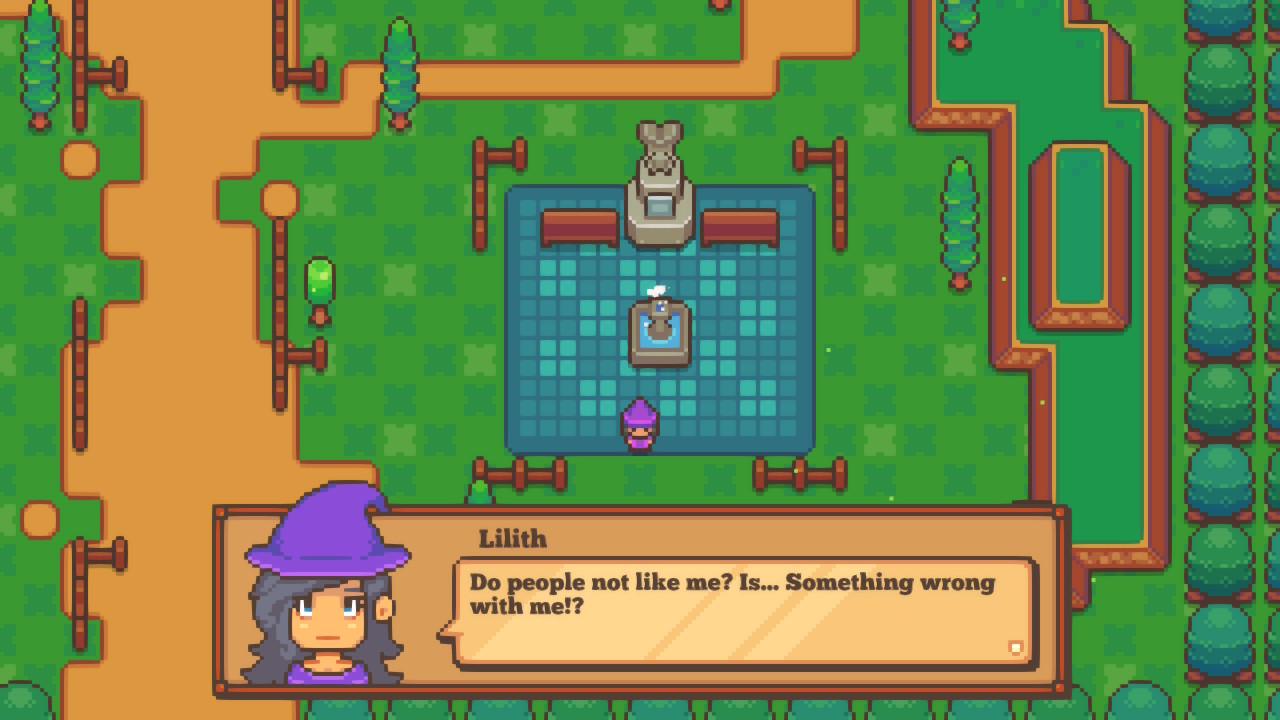
When you aren’t chatting up townsfolk, you’ll be tending your stores. Several open in the first season alone, and they range from a museum to a restaurant, and each expands your daily routine in fun new ways. The restaurant is a particular highlight and opens Littlewood’s cooking system.
You get a new recipe hint every day and have to work out what ingredients work with which cooking utensil you’ve got on hand (or look it up online), and then you can sell your successes for some good cash.
Growing more crops and obtaining animal products when you unlock farm animals vastly expands your repertoire and shows off just how tightly designed Littlewood’s systems are. Like the best farm-sim games, Littlewood ties its features together through multiple gameplay loops so you’re always rewarded for doing something.
All of this, including restaurant upgrades and farming, requires materials, which is where Littlewood’s chief gameplay system is and also where it stumbles the most.
Getting started is painless. You have enough materials for the first few necessary spaces, including houses and a hot air balloon station, and two of the vital material-processing facilities are already built for you as well. Tools are free and never wear down, and once you go through your initial resources, it’s time to get to work finding lumber for houses, stones for buildings, and so on.
Your hot air balloon opens some small areas for exploring and gathering, and like the town, they’re in that Goldilocks zone of being sized just right. The issue is stamina.
The stamina bar fills up fast, even with a good night’s sleep and Wish enhancements. You can spend a third of a day chopping some wood, for example, go back and process it, and that’s it for your stamina. If you overdo it on the actual gathering, you’ll have to process the next day, which means less stamina for gathering.
It turns Littlewood into more of a grind than I expected, and while it’s a compelling one, you can see the strings being pulled to make it work. Recognizing what a game wants you to do isn’t necessarily a bad thing, but it does take some of the magic out.
Because of how upgrades and progression work, the same applies to advancing parts of your town. You’ll need the same materials to upgrade every store, expand your gathering areas, and unlock new Wishes at the Town Hall, but in between the big upgrades, you’re just getting rare items or a few extra materials. Every upgrade level has three stages, and even if the materials are ready to go, you’ll still have to wait for the next day to upgrade.
It’s the kind of drawn-out setup you’d expect from a mobile game, though Littlewood’s streamlined nature and ease of play make dealing with the grind much easier. The emotional rewards outweigh the annoyance by far, and it all quickly turns into a soothing routine that makes Littlewood perfect for shorter sessions or for winding down with.
Littlewood Switch Review — The Bottom Line
Pros
- Comfortable, intimate town building
- Loads of customization
- Fun characters
- Compelling systems
Cons
- Grindy
- Progression can feel contrived
Littlewood‘s warm setting, deep customization, and endearing characters make it one of the better farm-sims on Nintendo Switch.
The grind is real, but if you can look beyond that, Littlewood‘s homey setting, warm characters, and endless customization make it much more than just another farm sim.
[Note: SmashGames provided the copy of Littlewood used for this review.]

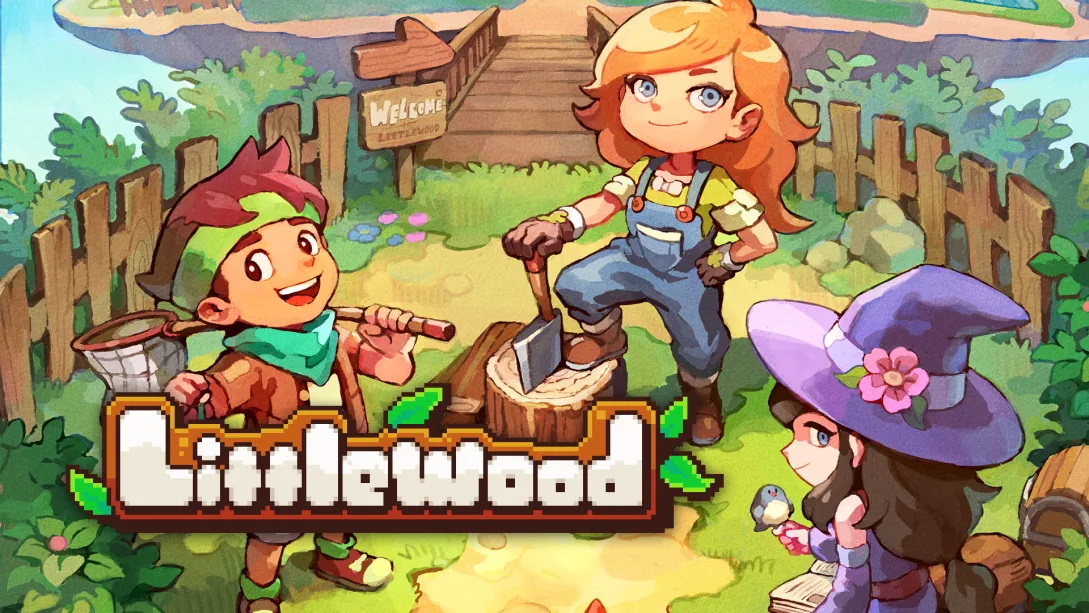
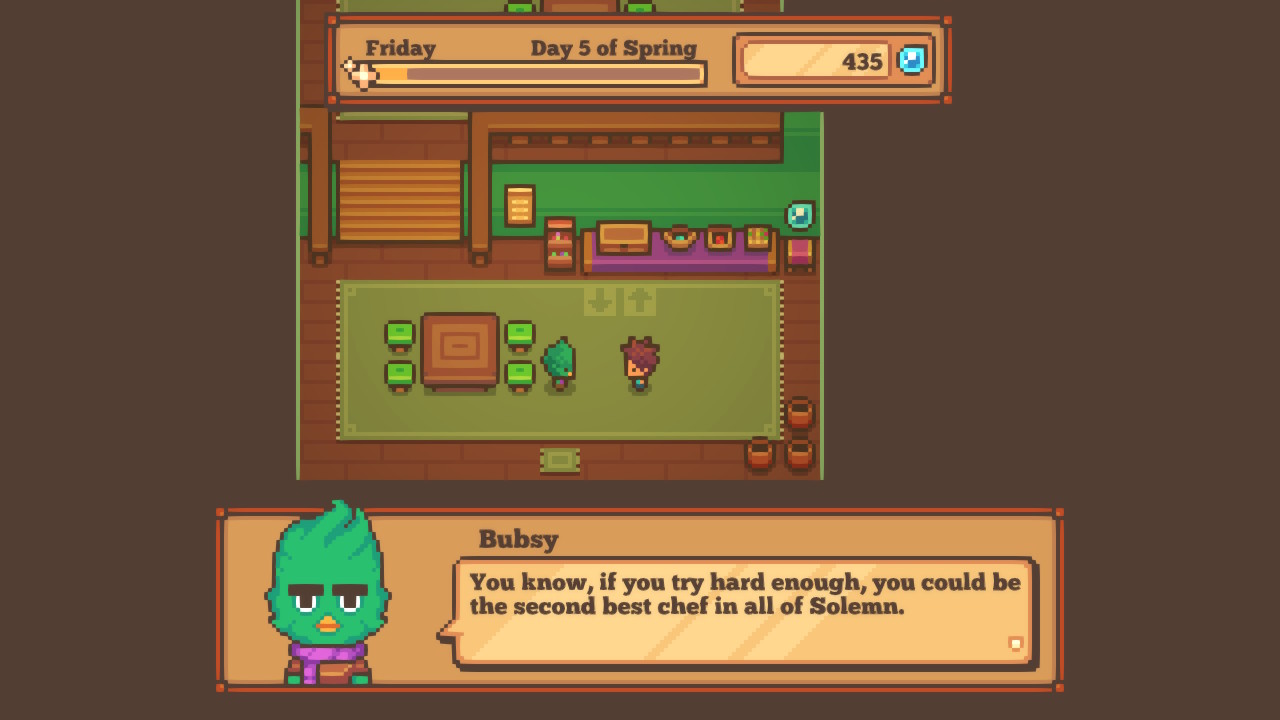






Published: Feb 25, 2021 12:25 pm